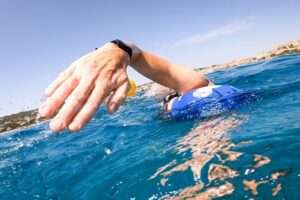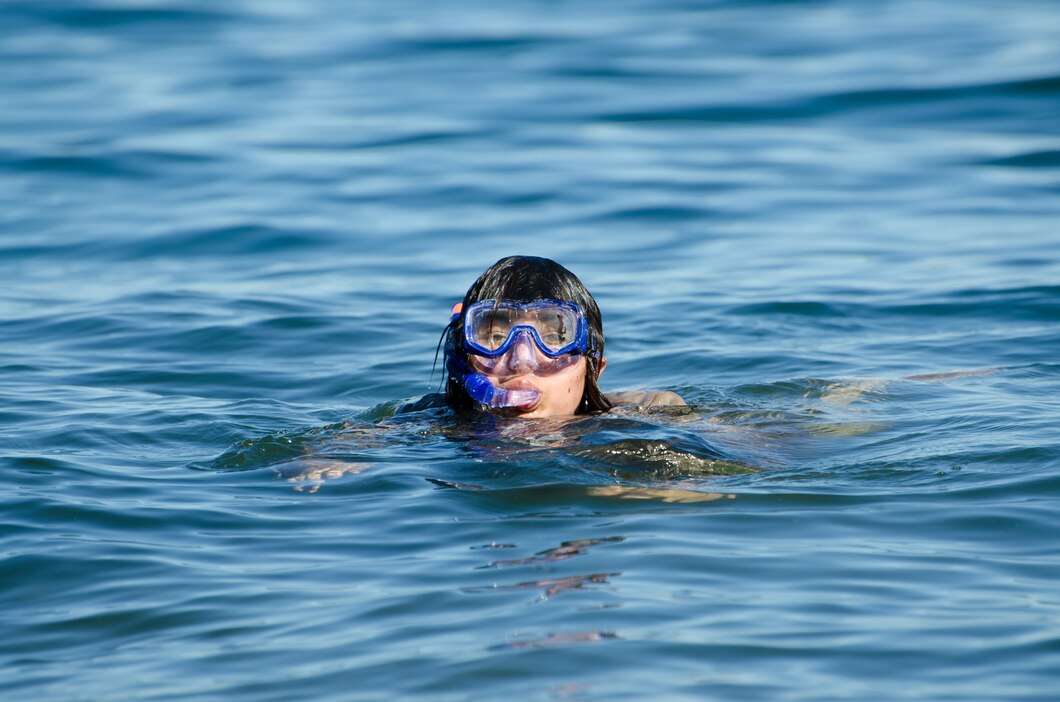Can you use gps while stranded in the ocean: Useless in any capacity, being stranded in an ocean is one of the most jarring concepts there is. You are completely surrounded by an endless ocean with no land or resources in sight. Survival suddenly becomes your utmost priority. In these dire circumstances, some may ask themselves, *Can you use a Global Positioning System or GPA while over the ocean?* The answer is yes, but with some important caveats. Let’s look at how GPS technology can aid your location tracking while at sea and what hurdles you may encounter in the process.
How Does GPS Work? What is GPS?
A Global Positioning System is everything but your typical handheld device. A GPS operates as a cross-linked network of satellites that provide information on time and location anywhere on Earth. The interconnected satellites give informational support. Signals from these satellites can be received on a smartphone, marine GPS, or other handheld GPS devices. For GPS services to be operational, there must be adequately positioned satellites within the associated complex.
Using GPS While at Sea: Can you use gps while stranded in the ocean
GPS systems can accurately function in the ocean. People find it helpful in determining their location while sailing, boating or floating in water, making it one of the crucial aids to navigation in the sea. This information is extremely helpful for rescue missions or in trying to navigate towards safety.

Things to Keep in Mind While Using GPS at Sea
1. Device Access and Protection
- Can you use gps while stranded in the ocean: You cannot use just any device in the vast oceans due to the destruction and harshness of the terrain. Make sure that, if stranded, your GPS device is either waterproof or protected in water resistant coverings.
- Even though smartphones come equipped with GPS, their power supply and sturdiness is not at the level needed for marine GPS devices.
2. Power Supply and Usage
- As with any device, portable GPS units require batteries and power which they are not designed to conserve. Always limit the power to what is absolutely necessary.
- Backup chargers for solar devices and external portable power sources can help increase the available charge, but in situations of emergencies they might not always be present.
3. Reception of Signals
- GPS technology depends on signals from the satellites, which may be influenced by climatic conditions such as tall waves, obstructions, or weather. To use your device efficiently, ensure an unobstructed view of the sky.
- In exceptional situations, technical malfunction of the satellites or solar flares may impede the GPS signal functioning.
4. Knowledge of Operating GPS device
- Can you use gps while stranded in the ocean: It is not sufficient to own a satellite GPS signal, rather you must know how to operate it. An operating device comes with other challenges, so practice with basic navigation skills such as reading coordinates or plotting a course ahead.
- If this is the first time you are using GPS, it is better to practice before you go into the ocean.
5. Alternative Methods For Navigation
- As previously mentioned, GPS is one of the most effective methods of locating, however, it has limitations. Therefore, look for other navigation methods which could include a compass, topographic maps, or knowledge of celestial navagation.
- Knowing the sun, stars, and ocean currents can actually help in critical scenarios to survive.
How GPS Can Be Helpful In Survival Scenarios
1. Determining Location
With the aid of GPS, the direction and relaying of precise coordinates can be achieved seamlessly. This significantly increases the possibility of an individual being found quickly when used alongside other survival equipment.
2. Finding A Path to Safety
Can you use gps while stranded in the ocean: GPS systems can aid in finding the nearest land or shipping lanes, but a vessel with adequate means of propulsion is required to follow water.
3. Monitoring Patterns Of Drift
A GPS system will allow you to monitor your position over time while adrift. Predicting the position you wish to be rescued at and devising the plans for the rescue subsequently becomes far easier.
Limitations Of Navigation Using GPS In The Ocean
1. Lasting Scarcity
Survivors often stranded at sea face an acute lack of food, water, and energy. The decision to ration power for the GPS device becomes paramount.
2. Environmental Dangers
Electronics can be damaged by salt water and extreme weather can negatively affect the reception of signals. It is best advised to always safeguard your device from outdoor elements.
3. Emotional Strain
Being stuck in the ocean is a mentally draining experience. Even when having a GPS device, remaining calm and composed is necessary to deal with mundane tasks requiring critical thinking.
Helpful Suggestions for GPS Utilization in Oceans
Can you use gps while stranded in the ocean. Here’s is the some helpful tips:
- Device Safety: Mount your GPS device in a waterproof casing to shield it from damage.
- Device Power: Utilize the power saving features of your device, and deactivate it during idle periods.
- Mental Control: Use GPS within broader survival paradigms that incorporate supplies and signalling strategies.
- Help Signaling: Give out the GPS coordinates over emergency radios, beacons, or visually with flares.
Final Statement
While GPS technology can be incredibly useful when lost in the ocean, it does depend on the specific circumstances. The main challenge is making sure you have the right tools, device, and conditions available. Even if this technology provides you with the most necessary information, it should solely be relied upon on an integral facet of a survival plan. Can you use gps while stranded in the ocean: Always be prepared for potential ocean emergencies by having sufficient tools, skills, and alternate navigation options. Having the most advanced technological devices will not solve the problem, calmness, and a level-headed approach is just as important. This applies whether you are a great adventurer or a sometimes sailor; knowing how to utilize GPS technology while at sea can be the difference between life and death.





